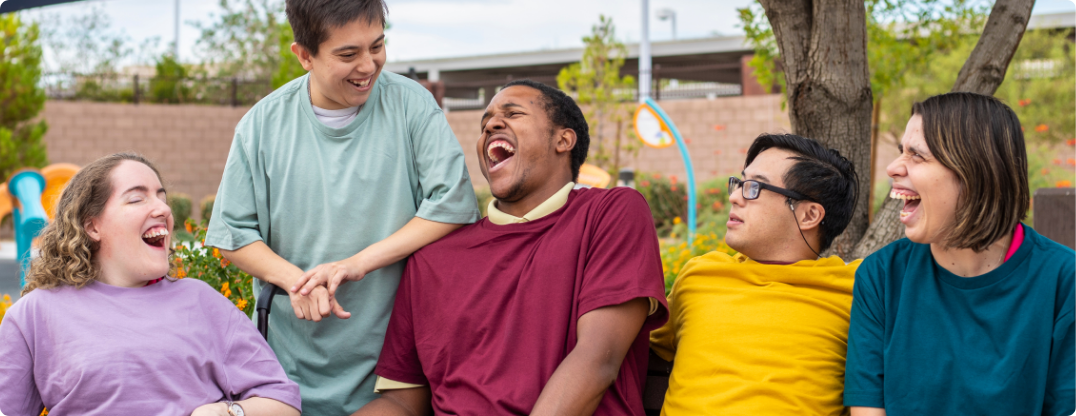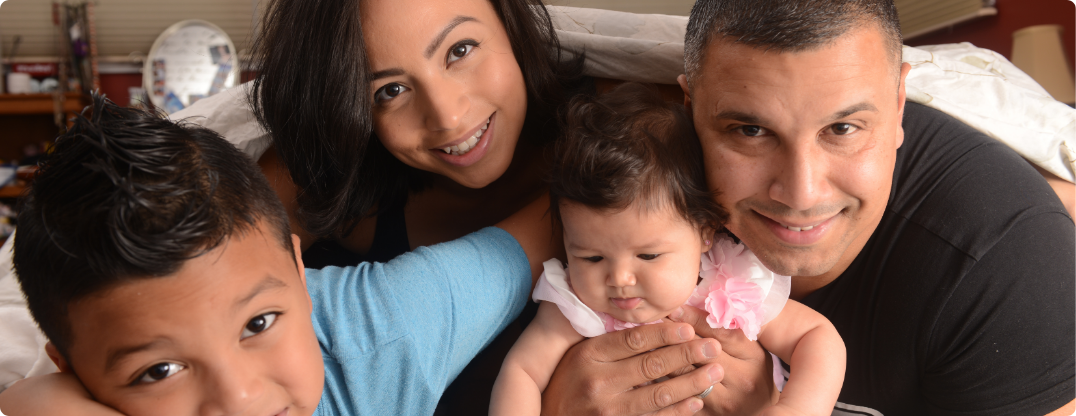Health and wellness needs are a big part of any adult’s life – and a person with a disability is no exception.
Health and Wellness
While there may be some specific needs related to health and wellness for people with disabilities (such as addressing co-existing conditions, physical or sensory accessibility needs, or medications a person might be required to take), good health and wellness and ways of achieving that for individuals with disabilities are the same as they are for anyone else.
A person’s good health and wellness may include mental, emotional, social, vocational, and spiritual well being, as well as the opportunity to choose those activities that the individual desires to be active and engaged in their community.
The National Center on Health, Physical Activity, and Disability (NCHPAD) is a public health resource center for people with disabilities. NCHPAD helps people with disabilities and other chronic health conditions achieve health benefits through increased participation in all types of physical and social activities. NCHPAD provides individualized information, referral, and consultation services to people with disabilities, families, caregivers, policymakers, community members, health care practitioners and public health professionals.
Got Transition is a national online resource which helps youth, young adults, and their families move from pediatric to adult health care. Health care transition, or HCT, is the process of getting youth ready for health care as adults.
With sections for parents/caregivers and youth and young adults, Got Transition provides tools and frequently asked questions, detailing an organized transition path to help guide both parents and youth through the move to adult-centered health care. Parents: Health Care Transition Quiz and frequently asked questions. Youth: Health Care Transition Quiz and frequently asked questions. Plus an extensive list of resources and research for families.
The Office of Developmental Primary Care (ODPC), a program of the University of California San Francisco Department of Family and Community Medicine, provides information and resources on health care advocacy and research, along with practical tips and forms to assist people with disabilities in navigating their health care. Please see Dr. Clarissa Kripke, Director of ODPC, as she discusses the process of transitioning from pediatric to adult health care and shares concrete tips and valuable resources in Navigating Pediatric to Adult Health Care.
Mental Health Services
The Mental Health Services Division (MHSD), as part of the CA Department of Health Care Services, administers a number of mental health programs for children, youth, and adults. People seeking non-crisis, general mental health services or information should contact their County Mental Health Department or visit the Individuals page.
California Behavioral Health Community-Based Organized Networks of Equitable Care and Treatment Demonstration aims at improving care for Medi-Cal members living with significant behavioral health needs.
National Alliance on Mental Illness, California, (NAMI) is a grassroots organization of individuals who provide help, hope, and health for those affected by serious mental illness. NAMI provides leadership in advocacy, policy, education, and support throughout CA. NAMI educates families, professionals, and the public about the recent explosion of scientific evidence that shows serious mental illnesses are neurobiological brain disorders. NAMI strives to get rid of the stigma around mental illness.
The Substance Abuse and Mental Health Services Administration (SAMHSA), as part of the U.S. Department of Health and Human Services (HHS), leads public health efforts to advance our nation’s behavioral health and improve the lives of individuals living with mental and substance use disorder (and their families’ lives too). SAMHSA operates a 365 day, 24/7 hour national helpline and provides resources to those seeking help.
The National Institute for Mental Health, the federal agency for research on mental disorders, offers basic information on mental disorders, a range of related topics, and the latest mental health research.
Friendships, Relationships, Sexuality
Forming strong connections with others and maintaining friendships can have a major impact on people’s physical and mental health and well-being. Helping Individuals with Special Needs Develop Friendships discusses how to guide those with disabilities who need some support. Friendships for People with Intellectual Disabilities gives concrete tips and support strategies for promoting friendships for people with disabilities.
A good way to build relationships with people is around shared interests. Hear this tip and more at 5 Steps to Help Neurodivergent Young Adults Build Relationships.
And what about love and romance and sex?
Guide on Sexuality and Sexual Health from Office of Developmental Primary Care, includes information on sexuality education, dating, relationships, talking to your doctor, marriage, pregnancy, safety of online dating, sexual abuse/violence.
Healthy Sexuality and Adults with Disabilities discusses positive sexual health (a state of physical, mental, and social well-being in relation to sexuality) for people with disabilities and dispels common myths about sexuality and people with disabilities.
The National Council on Independent Living offers Sex Ed for Individuals with I/DD, a video series designed to help people with intellectual and developmental disabilities learn about sex.
Loving, Dating, Relationships, and Disability explores love in many forms with first-hand accounts of friendship, dating, intimacy, and marriage from people living – and loving – with disabilities.
Sexuality Education for Students with Disabilities, from the Center for Parent Information and Resources, explores what sexuality is, its meaning in adolescent and adult life, and the responsibilities that go along with exploring and experiencing one’s own sexuality.
Medical Insurance
Medi-Cal is California’s Medicaid program. This is a public health insurance program which provides needed health care services for low-income individuals including families with children, seniors, and persons with disabilities. If a person qualifies for SSI, they automatically qualify for full Medi-Cal coverage. If a person does not qualify for SSI, see Steps to Medi-Cal. Medi-Cal currently offers dental services as a benefit through Denti-Cal.
Covered California is a free service that connects Californians with brand-name health insurance under the Patient Protection and Affordable Care Act. It may provide people with financial help when buying health insurance from well-known companies. After people apply, they may qualify for a discount on a health plan through Covered California, or get health insurance through the state’s Medi-Cal program. Covered California and Medi-Cal use the same application. People can apply once to find out which program they qualify for. Some households qualify for both.
Medicare is a health insurance program for people 65 years of age and older, some disabled people under 65 years of age, and people with end-Stage Renal Disease










